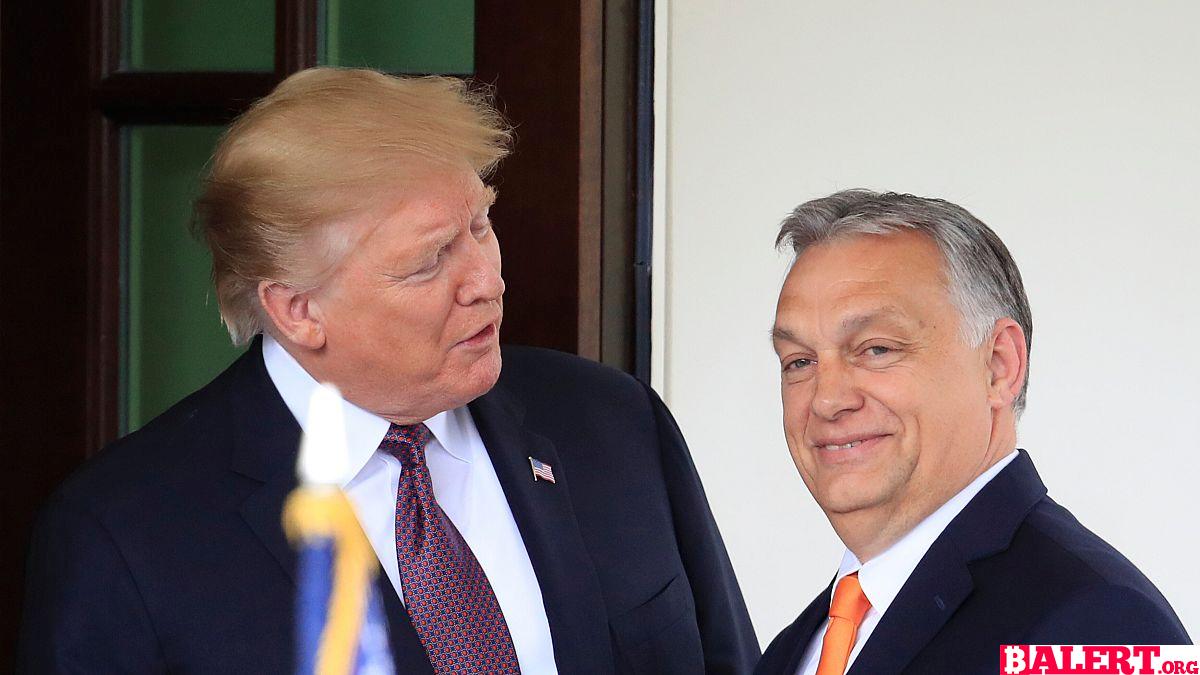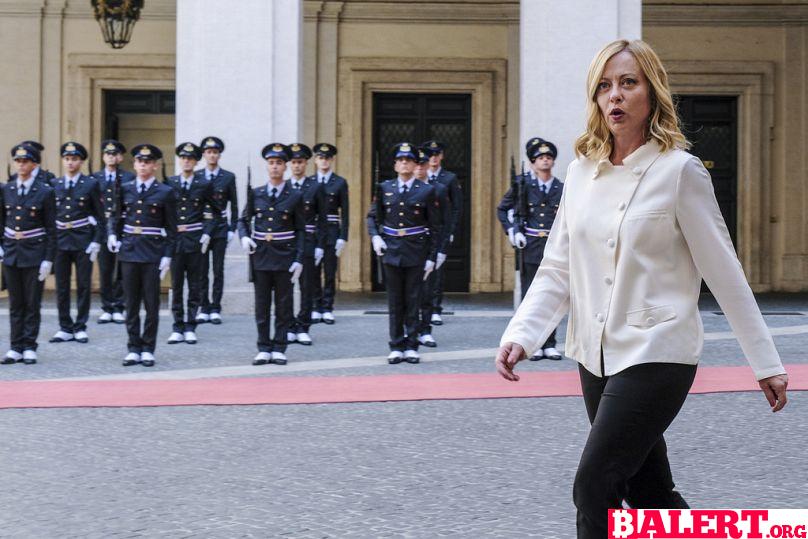World
Preparing for a Possible Trump Presidency: European Perspectives
Explore the implications of a potential Trump presidency from a European perspective. This analysis delves into political, economic, and social ramifications, offering insights into how Europe may navigate changing US policies and preserve its interests.

As the US election approaches, European leaders are mentally bracing themselves for the potential return of Donald Trump to the presidency. Such an event would have significant ramifications, not only for trade and diplomacy but also for the collective security framework that has underpinned a relatively peaceful Europe since the conclusion of World War II. While Trump’s campaign is currently centered on domestic issues, the lessons from his previous term provide insights into how he might navigate international relations, particularly with Europe.
Trump has made it clear who he considers his allies in Europe: a network of right-wing leaders and opposition figures who share his skepticism of international institutions, multiculturalism, progressive social policies, and free trade. However, the political landscape has evolved since his last presidency, especially in light of Russia’s aggressive actions in Ukraine. This means that a new Trump administration would need to forge new alliances and tackle various challenges, or potentially disengage from them altogether.

Viktor Orbán: Hungary’s Autocratic Ally
Among Trump’s admirers is Hungary’s Prime Minister, Viktor Orbán, known for his promotion of “illiberal democracy.” Despite facing criticism from the EU regarding his authoritarian tendencies, Orbán has gained admiration from certain factions of the American right, who view his governance as a potential model for the United States. His inclination to indulge conspiracy theories regarding “globalist” influences has allowed him to justify significant restrictions on media and academic freedoms, distancing his country from EU norms.

Orbán’s influence extends beyond Hungary; he wields veto power within various EU institutions and NATO, where he has previously collaborated with Turkey to delay Sweden’s accession. Currently holding the rotating EU presidency, Orbán has utilized this position to provoke tensions with other European leaders, particularly through his recent meeting with Russian President Vladimir Putin and his pursuit of an unconventional foreign policy that puts him at odds with many of his European counterparts.
Emerging Right-Wing Leaders
While Orbán stands as a unique figure, other European leaders are trending towards his ideological stance. In Slovakia, the return of right-wing Prime Minister Robert Fico to power in 2023 marks a shift towards more conservative governance. Fico, who recently survived an assassination attempt, has exhibited anti-LGBTQ+ sentiments, an anti-immigration stance, and a warmer approach towards Putin than most European leaders. This indicates a growing acceptance of right-wing politics in parts of Europe, albeit with some leaders still facing electoral setbacks.
Giorgia Meloni: Italy’s Conservative Prime Minister
Another significant player in this landscape is Italy’s Prime Minister, Giorgia Meloni. As the most right-wing leader in the G7, she has been proactive in cultivating relationships with international right-wing movements. Despite her culturally conservative and nationalistic views, Meloni has successfully navigated the political waters of the EU without acquiring the same stigma as Orbán. Her coalition with the anti-immigration Lega party has not overshadowed her ability to connect with other governments.
If Trump is re-elected, Meloni’s position could make her a crucial ally, potentially serving as a bridge between a new Trump administration and an EU that may have conflicting priorities. Her adeptness in foreign relations could help mitigate some of the tensions that might arise from Trump’s policies.
The Rise of Europe’s Radical Right
Trump’s most fervent supporters in Europe can be found within the ranks of hardline and extreme right-wing parties, many of which are either in opposition or operating from outside the elected government. Notable groups such as Spain’s Vox, France’s National Rally, Alternative for Germany (AfD), and Reform UK have made significant strides in recent years, increasing their presence in national parliaments and gaining notable electoral victories.
These parties, similar to Trump, often oppose mass immigration—particularly from economically disadvantaged and predominantly Muslim nations. They express skepticism towards NATO, the EU, and other international entities while appealing to socially conservative voters who feel marginalized by mainstream politics.
Some leaders from these parties, like Nigel Farage from Reform UK, have openly aligned themselves with Trump and his allies, often participating in Trump events and engaging with right-wing media in the US. However, predictions about the dominance of this political trend in Europe have not materialized as expected. For instance, Farage’s party holds a limited number of seats, and the National Rally has fallen short of its electoral ambitions.
Conclusion: The Future of US-EU Relations
Despite some gains, the overall landscape suggests that Trump would confront a Europe largely resistant to his unorthodox, sovereignty-first approach. With European leaders prioritizing a pro-Ukraine, multilateral strategy, the implications of a second Trump presidency could indeed challenge the existing international order. This scenario underscores the importance of centrist and internationalist policies in Europe, as they seek to maintain stability amidst potential upheaval.
Related Articles
- Push it to the limit: What might be too extreme for Europe’s far-right parties?
- Gender imbalance tied to rising far right, says Romania’s new EU Commission pick | Radio Schuman
- Just how extreme is Nigel Farage’s Reform UK?
- Germany grapples with far-right surge as AfD wins state election
World
Dominique Pelicot Testifies in Harrowing Rape Trial
Join us as Dominique Pelicot courageously testifies in a harrowing rape trial, shedding light on the complexities of trauma and justice. Her powerful story raises crucial questions about the legal system and the importance of support for survivors.

Dominique Pelicot Takes the Stand in Shocking Rape Trial
In a courtroom drama that has captivated France and garnered international attention, Dominique Pelicot, the man at the center of a harrowing rape trial, finally addressed the court. With tears streaming down his face, he recounted how his wife had been instrumental in helping him cope with a tumultuous past marked by trauma. He revealed that he had endured a sexual assault at the tender age of nine while hospitalized, and he also witnessed a gang rape during his teenage years while working as an apprentice electrician on a construction site.
“She didn’t deserve this, I acknowledge that,” Mr. Pelicot stated, his voice barely audible as he struggled to convey his emotions. The gravity of the situation weighed heavily on him, and the courtroom fell silent, straining to catch his every word.
Now 71 years old, Mr. Pelicot faces serious allegations of drugging his wife, Gisèle Pelicot, whom he has been married to for half a century, over a span of nearly ten years. Prosecutors contend that he used drugs to render her comatose, allowing him to rape her repeatedly. Furthermore, authorities allege that he went so far as to invite numerous men into their home, facilitating a nightmarish scenario where they, too, engaged in the assault of his wife.
Overall, 51 men, including Mr. Pelicot, are on trial concurrently, primarily facing charges related to the aggravated rape of Ms. Pelicot. Among them, one individual has already pleaded guilty to similar crimes, admitting to drugging his own wife to assault her and inviting Mr. Pelicot to partake in the horrific act while she was incapacitated.
Mr. Pelicot’s unexpected testimony came after a tumultuous start to the trial. Just a week in, he was stricken with severe health issues that forced him to miss four consecutive days in court. The head judge ultimately decided to postpone proceedings, as Mr. Pelicot was diagnosed with kidney stones, a kidney infection, and prostate complications, adding yet another layer of complexity to this already harrowing case.
World
Meta Bans Russian State Media Outlets from Social Media Platforms
Explore the implications of Meta’s decision to ban Russian state media outlets from its social media platforms. Understand the impact on information dissemination and the ongoing battle against misinformation in the digital landscape.

Meta Imposes Global Ban on Russian State Media Outlets
In a significant move, Meta Platforms, Inc., the parent company of Facebook, has announced the prohibition of Russian state media outlets, including RT (Russia Today) and Rossiya Segodnya, from all its social media platforms. The decision stems from the company’s concerns regarding the deceptive strategies employed by these media organizations to execute covert influence operations across the internet.
Meta made this announcement on Monday, emphasizing that the ban will be enforced worldwide across its various platforms, such as Instagram, WhatsApp, and Threads. The rollout of this ban is expected to take place over the coming days.
Statement from Meta
A spokesperson for Meta elaborated on the decision, stating, “After careful consideration, we have expanded our ongoing enforcement actions against Russian state media outlets. As a result, Rossiya Segodnya, RT, and other affiliated entities are now banned from our applications globally due to their involvement in foreign interference activities.”
For further insights into this development, watch the video in the player above.
World
Trump Recalls Alleged Assassination Attempt While Golfing
Explore Donald Trump’s chilling recollection of an alleged assassination attempt he experienced while enjoying a round of golf. Delve into the tense moments and his reflections on safety, fame, and the unpredictability of public life.

In a recent interview on the social media platform X, Republican presidential nominee Donald Trump recounted a harrowing incident he claims to have experienced while playing golf. Trump described how, during a peaceful Sunday morning round with friends, the tranquility of the day was abruptly shattered by the sound of gunfire in the air.
“It was a beautiful day, everything was just perfect,” Trump reflected. “Then all of a sudden, we heard shots being fired—probably around four or five in total.” He went on to explain that a Secret Service agent was the first to spot the suspect, who was allegedly armed with an AK-47, a powerful assault rifle.
“The agent saw the barrel of the weapon and immediately took action, returning fire at the barrel and aiming in the direction of the bushes,” Trump detailed. “I would have loved to have sunk that last putt, but we decided it was best to leave the scene promptly.”
Trump expressed his gratitude towards the agents and a vigilant civilian who aided in tracking down the suspect, who was eventually apprehended following a high-speed chase.
Suspect Faces Multiple Federal Gun Charges
The FBI has identified the suspect as Ryan Wesley Routh, accusing him of targeting Trump during his time at the golf club in West Palm Beach, Florida. According to an FBI report, Routh had allegedly hidden among the hedges of the golf course for an astonishing 12 hours. Authorities discovered an SKS-style assault rifle, a GoPro camera, and a bag of food at the scene.
The 58-year-old Routh is now facing two serious federal gun charges. If convicted on both counts, he could face a combined maximum sentence of 20 years in prison. Notably, neither of the charges is directly related to an assassination attempt. The first charge pertains to possessing a firearm despite a prior felony conviction, which carries a potential 15-year sentence, a fine of $250,000 (€225,000), and three years of supervised release.
The second charge involves possession of a firearm with an obliterated serial number, which could result in a five-year prison term, the same financial penalties, and also three years of supervised release. As the investigation continues, additional charges could be forthcoming.
While the motive behind Routh’s actions remains unclear, his digital footprint reveals strong political affiliations, particularly concerning issues surrounding Ukraine and China. Routh consistently expressed support for Ukraine across various social media platforms, even claiming to have orchestrated a recruitment scheme for international volunteers aiming to assist Ukraine in its fight against Russia’s invasion. This behavior has been denounced by Ukrainian soldiers and members of the International Legion, who disavowed Routh’s actions and motives.
-

 Business7 months ago
Business7 months agoThe Significance of Jackson Hole: A Central Banking Tradition
-

 Tech6 months ago
Tech6 months agoNew Leaks and Features About the Samsung Galaxy S25 Ultra
-

 Article9 months ago
Article9 months agoCreative Design Applications Developed with Artificial Intelligence
-

 Business6 months ago
Business6 months agoBhutan’s Strategic Investment in Bitcoin: A New Era for the Himalayan Kingdom
-

 Business8 months ago
Business8 months agoObituary: Dan Collins
-

 World6 months ago
World6 months agoThierry Breton Resigns: Impact on European Union Leadership
-

 Gaming6 months ago
Gaming6 months agoNew Details and Trailer Released for Dead Rising Deluxe Remaster
-

 Gaming6 months ago
Gaming6 months agoNew Details for Alan Wake 2 and PlayStation 5 Pro Announcement












